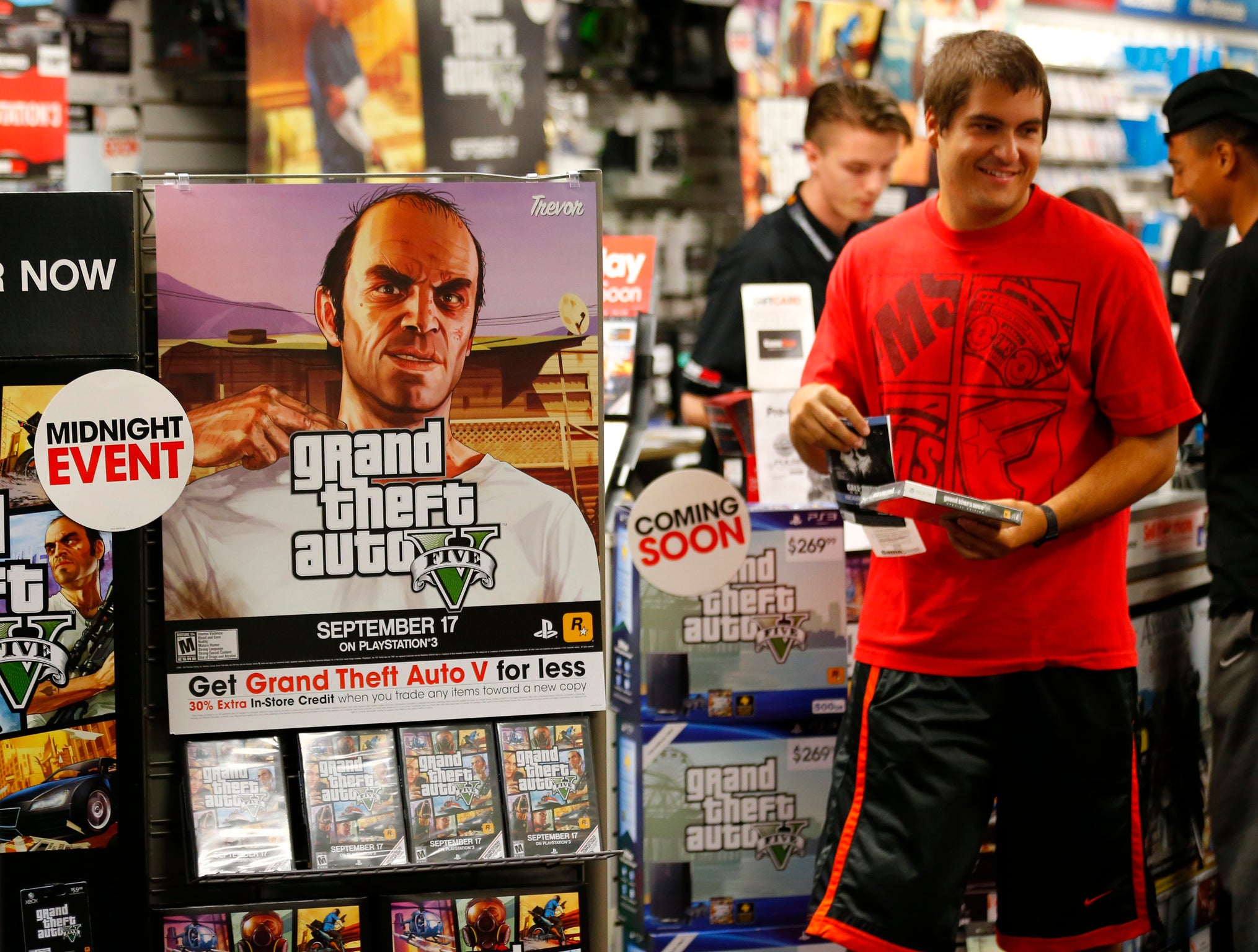Grand Theft Auto: UKIE defends age ratings system
UK body responsible for age ratings suggest parents take a 'sincere interest' in what their children buy

Your support helps us to tell the story
From reproductive rights to climate change to Big Tech, The Independent is on the ground when the story is developing. Whether it's investigating the financials of Elon Musk's pro-Trump PAC or producing our latest documentary, 'The A Word', which shines a light on the American women fighting for reproductive rights, we know how important it is to parse out the facts from the messaging.
At such a critical moment in US history, we need reporters on the ground. Your donation allows us to keep sending journalists to speak to both sides of the story.
The Independent is trusted by Americans across the entire political spectrum. And unlike many other quality news outlets, we choose not to lock Americans out of our reporting and analysis with paywalls. We believe quality journalism should be available to everyone, paid for by those who can afford it.
Your support makes all the difference.Videogame trade body UKIE has defended PEGI age ratings after they were criticised last week amid record sales for Grand Theft Auto V.
Footage was shown of parents buying the game for their children even though it is 18-rated and therefore deemed suitable only for adults.
Critics suggested that neither UKIE not the age ratings firm, PEGI, were doing enough to educate parents about the system which is used in more than 30 countries across Europe.
But UKIE CEO Dr Jo Twist said today: “The games industry takes the health and wellbeing of players very seriously. We’re always looking at new ways to raise awareness of PEGI, for example we have an askaboutgames stand at this year’s Eurogamer Expo.”
PEGI itself says the system is well promoted. Dirk Bosmans, its communications manager, told the trade publication MCV: “The industry organises campaigns on a regular basis to inform as many consumers as possible.
“Every single bit of marketing should carry a PEGI label. So each time the game is marketed on the side of a bus, on TV, or in magazines, you will see the PEGI label.”
Yet Mr Bosmans appeared to suggest parents needed to take a more proactive role in finding out about PEGI ratings and said tabloid newspapers were less interested in helping to promote the PEGI system and preferred sensationalist headlines.
“Parents who take a sincere interest in what their kids are playing will have found out about PEGI ratings. We cannot force them to do that,” he said.
“Ironically, the only ones not inclined to share information about PEGI, are the tabloids. Lots of sensationalist stories and pointing fingers, but hardly a paragraph on age ratings and the responsibility that parents carry as well.”
Since PEGI became the sole system for age classification for games in the UK on 30 July 2012, retailers which sell titles with ratings of 12, 16 or 18 years to children below the age limits have been subject to prosecution.
Children have been found to get around the problem, however, by persuading parents to buy the games for them. Louisa Barton, a 39-year-old from Manchester, bought the game for her son.
She said: “I always assumed the age-ratings indicated the difficulty of a game rather than its suitability. I've never really watched my son play them and I just assumed any violence would be cartoon-like.”
PEGI's criteria is set by the Games Ratings Authority (GRA), a division of the Hertfordshire-based Video Standards Council.
Join our commenting forum
Join thought-provoking conversations, follow other Independent readers and see their replies
Comments